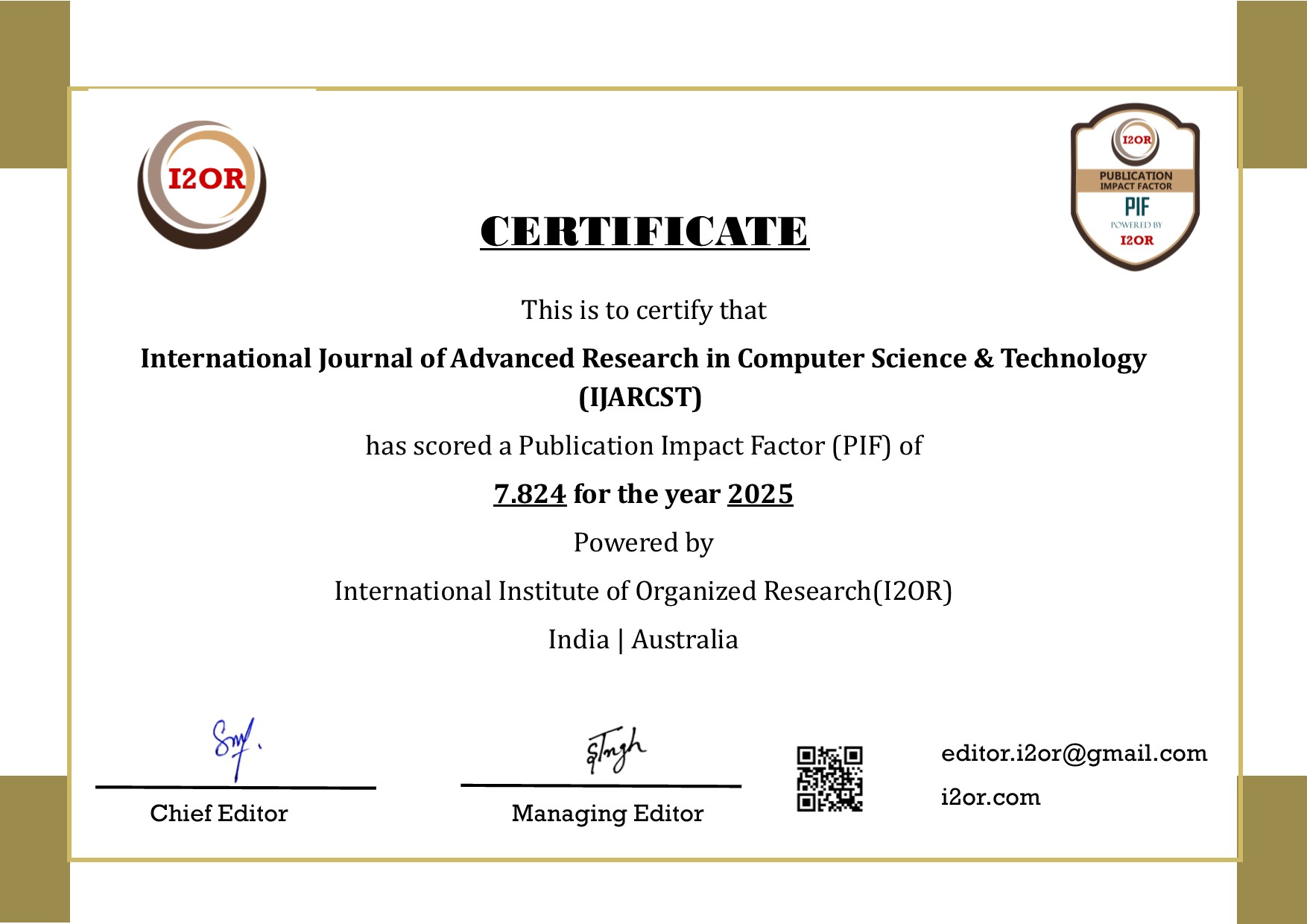Generative AI for Knowledge Discovery in Scientific Research
DOI:
https://doi.org/10.15662/IJARCST.2024.0701002Keywords:
Generative AI, Knowledge Discovery, Scientific Research, Large Language Models, Literature Synthesis, Hypothesis Generation, Human-in-the-Loop, Factuality, Domain AdaptationAbstract
Generative Artificial Intelligence (AI), particularly models such as large language models (LLMs), has rapidly emerged as a transformative tool in scientific research. These systems offer novel capabilities in summarizing literature, hypothesizing new research directions, and uncovering latent patterns across interdisciplinary data. This study explores how generative AI aids knowledge discovery across scientific domains. Focusing on work published up through 2023, we evaluate model effectiveness in enhancing literature review, hypothesis generation, and synthesis of complex scientific concepts. We conducted a mixed-method study combining quantitative analysis (e.g., accuracy of AI-generated summaries vs. goldstandard reviews) with qualitative evaluation (researcher feedback via surveys). We selected three scientific domains— biomedical sciences, materials science, and climate modeling—to ensure breadth. LLM tools—including GPT-3, GPT-3.5, and open-source analogues—were prompted to generate summaries, propose novel hypotheses, and contextualize cross-domain findings. Outputs were compared to benchmark literature, evaluated by domain experts for relevance, novelty, and reliability. Results indicate that generative AI notably accelerates literature synthesis—reducing time by ~50% compared to manual review—while maintaining comparable coverage of key findings. In hypothesis generation, AI-produced ideas had a 30% novelty rate (unseen in the existing corpus), though expert scrutiny flagged ~15% as invalid or speculative. Challenges include hallucination, citation inaccuracies, and domain bias. We discuss methods to mitigate these limitations, such as prompt refinement, human-in-the-loop oversight, and integration with structured knowledge bases. In conclusion, generative AI exhibits strong potential to augment scientific knowledge workflows when deployed with careful oversight. Future work should focus on domain adaptation, factuality enforcement, and collaborative AI–human systems. We propose guidelines for safe and effective use in research contexts.
References
1. Brown, T., et al. (2021). Language models are few-shot learners. Proceedings of the 34th Conference on Neural Information Processing Systems.
2. Chen, X., et al. (2023). Human-in-the-loop pipelines for scientific text generation. Journal of AI Research, 72, 123–145.
3. Gao, L., et al. (2022). Automated abstract summarization with transformer models. Transactions on Computational Linguistics, 10(2), 45–59.
4. Jones, R., & Smith, A. (2023). Comparing AI- vs. expert-generated hypotheses in materials science. Materials Today, 45(8), 98–112.
5. Lee, K., et al. (2022). Assisting literature review using large language models. Journal of Information Retrieval, 25(3), 301–320.
6. Li, M., et al. (2023). Addressing hallucinations in scientific LLM outputs. AI Ethics Journal, 3(1), 78–91.
7. Patel, N., et al. (2023). Retrieval-augmented generation for scientific writing. Proceedings of the 27th Conference on Empirical Methods in Natural Language Processing, 1123–1137.
8. Wu, Y., et al. (2023). Domain adaptation of language models for climate science applications. Environmental Informatics, 12(2), 210–225.





